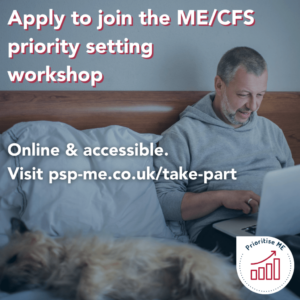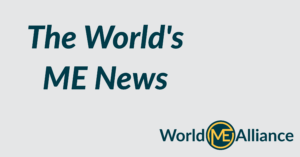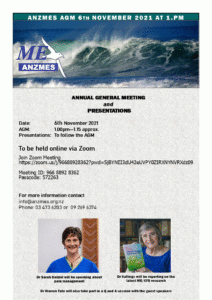Leaders in the ME community from across the globe joined in writing a rapid response to the July 2023 article titled “Anomalies in the review process and interpretation of the evidence in the NICE guideline for chronic fatigue syndrome and myalgic encephalomyelitis.”
The World ME Alliance is deeply disappointed that the Journal of Neurology and Neurosurgery and Psychiatry (JNNP) has not published our rapid response to this article.
Instead, this article remains published, while rapid responses rebutting it are not. This is a major disservice to people with ME everywhere. Readers of this article, and especially professionals who support and care for people with ME, must understand the strength of opposition to these author’s controversial assertions.
In our rapid response, authors from over 24 countries firmly endorse NICE’s statement that they “reject entirely the conclusions drawn by the authors of this analysis, and in particular their conclusion that NICE has not followed international standards for guideline development which has led to guidance that could harm rather than help patients”. And call for “progress beyond outdated and repetitive arguments.”
While awaiting NICE’s forthcoming detailed response, this rapid response underscores the international ME community’s unity in support of the 2021 NICE guideline on “Myalgic encephalomyelitis (or encephalopathy)/chronic fatigue syndrome: diagnosis and management.” By shedding light on the extensive backing of the ME community and underscoring the imperative for ongoing research, this response reiterates the significance of advancing treatments that genuinely improve the lives of those affected by ME.
Global ME community is unified in firm support for the NICE 2021 ME/CFS guideline
In rapid response to “Anomalies in the review process and interpretation of the evidence in the NICE guideline for chronic fatigue syndrome and myalgic encephalomyelitis” https://jnnp.bmj.com/content/early/2023/07/09/jnnp-2022-330463
The World ME Alliance, its 24 member organisations across 17 countries, and associated authors of this response firmly endorse NICE’s statement that they “reject entirely the conclusions drawn by the authors of this analysis, and in particular their conclusion that NICE has not followed international standards for guideline development which has led to guidance that could harm rather than help patients.”1
The authors identify eight arguments, all of which have been made and rebutted multiple times, including during an extraordinary roundtable that consequently delayed the publication of the ME/CFS guideline.2 It is essential to acknowledge that these arguments have been repeatedly found to be lacking.
In line with the 2003 Canadian Consensus Criteria3, the 2011 International Consensus Criteria4, the 2015 Four Symptom Empiric Criteria5, and the 2015 National Academy of Medicine (NAM) (previously Institute of Medicine) criteria6, we support the inclusion of the post-exertional malaise (PEM) as a core symptom of ME. We also support the decision to undertake sensitivity analyses to assess whether the presence of PEM in trials affected outcomes. The authors’ argument against mandatory PEM fails to note the Centers for Disease Control’s current recommendation of the 2015 NAM criteria which includes PEM.
The low quality evidence ratings for research which predominantly investigated individuals with chronic fatigue, not ME, is a demonstration of the rigour with which NICE undertook this review. Advancements in best practice to diagnose ME are to be celebrated.
NICE did not “minimise” the importance of fatigue as an outcome. In fact, the committee agreed that “fatigue/fatiguability” was one of the “outcomes that matter most”.7
The application of GRADE to synthesise evidence was undertaken by an independent NICE technical team, as is standard practice.
The authors cherry pick statements from trials in relation to the definition of GET. Other statements that could be pulled out include “encourage maintenance of exercise despite an increase in symptoms” and “add 20% duration.”8
It is crucial for readers to be aware that previous studies conducted by some of these researchers were rated as low or very low quality by NICE. This information adds important context to their perspectives.
It is disappointing that these researchers did not draw more broadly on the wealth of knowledge of people with ME prior to publication.
We are concerned that this new paper will effectively encourage clinicians to offer GET to patients, perpetuating harm and increasing disability.
Given the overwhelming support of so many international patient organisations for the 2021 NICE ME/CFS guideline, it is imperative to progress beyond these outdated and repetitive arguments. Current research indicates that approximately 50% of individuals with long COVID meet the criteria for ME/CFS,9 further emphasising the need to prioritise meticulous research efforts aimed at discovering treatments that truly enhance the functioning and quality of life of people with ME.
We look forward to reading NICE’s detailed response when it becomes available, but wish to make clear the unity of the international ME community in its support of the 2021 NICE guideline “Myalgic encephalomyelitis (or encephalopathy)/chronic fatigue syndrome: diagnosis and management”.10
Authors
| Sian Leary | – Head of Advocacy and Communications, World ME Alliance |
| Sonya Chowdhury | – CEO, Action for M.E., Co-Chair, World ME Alliance |
| Oved Amitay | – CEO and President, Solve M.E., Co-Chair, World ME Alliance |
| Simon Chandler | – Chair, Forward ME |
| Stefanie Olivier | – Co-founder, Millions Missing Belgique |
| Cristina Montané | – Board member, ACAF and Plataforma Familiars FM-SFC-SQM |
| Evelien Van Den Brink | – Chair , European ME Coalition (EMEC) |
| Charles B Shepherd | – Physician, Medical Adviser / ME Association |
| Scott Simpson | – Mental Health Counselor, Millions Missing Canada |
| Rony Hacohen | – Founding Director, ME/CFS Israel |
| Denise Spreag | – Trustee, #MEAction UK |
| Laurie M Jones | – Executive Director, #MEAction |
| Nigel Speight | – Paediatrician, Locum consultant in NHS |
| Samantha F. Pearce | – Communications liaison, ME CFS Foundation South Africa |
| Juan A Corlett | – Chairperson, ME Support (IOM) |
| Fiona L Charlton | – President, ANZMES (Associated NZ Myalgic Encephalomyelitis Society Incorporated) |
| Anna E.S. Brooks | – Senior Lecturer and Researcher , The University of Auckland |
| Rosamund Vallings | – Medical Practitioner, ANZMES |
| Anne C Wilson | – Chief Executive Officer , Emerge Australia |
| Michelle Tavoletti | – Research Manager, Emerge Australia |
| Sara Ballouz | – Senior Lecturer, UNSW |
| Mona Jeffreys | – Associate Professor (Research) , Victoria University Wellington |
| Paul R. Fisher | – Emeritus Professor of Microbiology, La Trobe University |
| Martin Hippe | – Lawyer, Mirame Arts e.V. |
| Erica F. Verrillo | – President, AMMES, American ME and CFS Society |
| Vera P Kindlon | – Carer, Irish ME/CFS Association – for Information, Support & Research |
| Aleix Datzira | – President, ACSFCEM |
| Dr Richard Schloeffel OAM | – Specialist GP, Senior Clinical Lecturer and Researcher, Macquarie University, Australia, Medical Director of Emerge Australia and The Grove Health, Sydney. |
| Linda Anne Campbell | – Advanced Nurse Practitioner, Primary Care (MSc), Hope 4 ME & Fibro Northern Ireland (Chair, and Healthcare Professional Educational Advisor) |
| Joan E. McParland MBE | – Charity Founder and Voluntary Coordinator, Hope 4 ME & Fibro Northern Ireland |
| Chantal Somm | – Member of the College, Millions Missing France |
| Julia L Newton | – Emeritus Professor and Consultant Physician, Newcastle Hospitals NHS Foundation Trust |
| Ágnes Szarvas | – Advocate, ME/CFS Hungary |
| Caroline F Dalton | – Associate Professor, Sheffield Hallam University |
| Samuli Tani | – Chairman, Suomen lääketieteellinen ME/CFS-yhdistys ry |
| Warren P Tate | – Professor, University of Otago, Dunedin , New Zealand |
| Saskia M. de Wit | – Volunteer – Research and Advocacy, MECVS Nederland |
| Sarah J. Annesley | – Scientist, La Trobe University |
| Mlindeni Cyprian Gabela | – Ambassador, The ME CFS Foundation South Africa |
| Giada Da Ros | – President, CFS/ME Associazione Italiana odv |
| Andy Devereux-Cooke | – Patient Advocate, Science for ME |
| Maree Candish | – Patient Advocate, Science for ME |
| Debbie Smith | – Carer Advocate, Science for ME |
| Petr Homolka | – Founder of Neunavni Foundation, Neunavni |
| Brian M. Hughes | – Professor of Psychology, University of Galway |
| Joan Serra Hoffman | – ME Task Force Coordinator, MYOS National Portuguese Association Against Fibromyalgia and Chronic Fatigue Syndrome /ME |
| James W Davis | – President, ME International |
| Jan M Russell | – Chair, Welsh Association of ME & CFS Support (WAMES) |
| Michiel Tack | – Vice-Chair, 12ME |
| Simon Lawrence | – Chairperson, 25% ME GROUP |
| Maria Richardson | – Writer and Teacher, Millions Missing Mexico |
| Jessica A Kauhausen | – Australian ME/CFS Registry and Biobank manager, Emerge Australia |
| Nadja Kiiskinen | – Vice Chair, SMEY / Suomen ME/CFS-yhdistys ry aka The Finnish ME/CFS Association |
| Gemma Hoyes | – Postgraduate Student, ME Research Collaborative – Patient Advisory Group (MERC-PAG) |
| Kiri Stuart-Clarke | – Digital Proposition Manager, ME Research Collaborative – Patient Advisory Group (MERC-PAG) |
| Opal Webster-Philp | – Educator, ME Research Collaborative – Patient Advisory Group (MERC-PAG) |
| Janet Sylvester | – Co-founder, #MEAction Scotland |
| Mieko Shinohara | – Founder, Japan ME Association |
Competing Interests
The authors of this response are predominantly representatives of national patient organisations, working with their respective governments and other bodies to improve the lives of people with ME. Researchers represented here work with universities across the world to investigate ME/CFS.
For correspondence contact: info@worldmealliance.org
References
1. Rachel Hall. ME/CFS guidance that discourages exercise is flawed, say researchers. The Guardian [Internet]. 2023 Jul 11. Available from: https://www.theguardian.com/society/2023/jul/11/chronic-fatigue-guidance-discouraging-exercise-is-flawed-say-researchers
2. National Institute for Health and Care Excellence. Update on the NICE ME/CFS guideline roundtable discussion. 2021 Sep 21. Available from: https://www.nice.org.uk/news/article/update-on-the-nice-me-cfs-guideline-roundtable-discussion
3. Carruthers BM, Jain AK, De Meirleir KL, Peterson DL, Klimas NG, Lerner AM, Bested AC, Flor-Henry P, Joshi P, Powles AP, Sherkey JA. Myalgic encephalomyelitis/chronic fatigue syndrome: clinical working case definition, diagnostic and treatment protocols. Journal of chronic fatigue syndrome. 2003 Jan 1;11(1):7-115.
4. Carruthers BM, van de Sande MI, De Meirleir KL, Klimas NG, Broderick G, Mitchell T, Staines D, Powles AP, Speight N, Vallings R, Bateman L. Myalgic encephalomyelitis: international consensus criteria. Journal of internal medicine. 2011 Oct;270(4):327-38.
5. Jason LA, Kot B, Sunnquist M, Brown A, Evans M, Jantke R, Williams Y, Furst J, Vernon SD. Chronic fatigue syndrome and myalgic encephalomyelitis: towards an empirical case definition. Health psychology and behavioral medicine. 2015 Jan 1;3(1):82-93.
6. Clayton EW. Beyond myalgic encephalomyelitis/chronic fatigue syndrome: an IOM report on redefining an illness. Jama. 2015 Mar 17;313(11):1101-2.
7. National Guideline Center. Evidence reviews for the non-pharmacological management of ME/CFS. NICE. October 2021. Available from: https://www.nice.org.uk/guidance/ng206/evidence/g-nonpharmacological-management-of-mecfs-pdf-9265183028
8. Bavinton J, Darbishire L, White PD. Manual For Therapists.Graded Exercise Therapy For CFS/ME.16 November 2004. Available from: https://www.qmul.ac.uk/wiph/media/the-wolfson-institute-of-population-health-wiph/documents/5.get-therapist-manual.pdf
9. Davis HE, McCorkell L, Vogel JM, Topol EJ. Long COVID: major findings, mechanisms and recommendations. Nature Reviews Microbiology. 2023 Mar;21(3):133-46.
10. National Institute for Health and Care Excellence. Myalgic encephalomyelitis (or encephalopathy)/chronic fatigue syndrome: diagnosis and management. 2021 Oct 29. Available from: https://www.nice.org.uk/guidance/ng206




